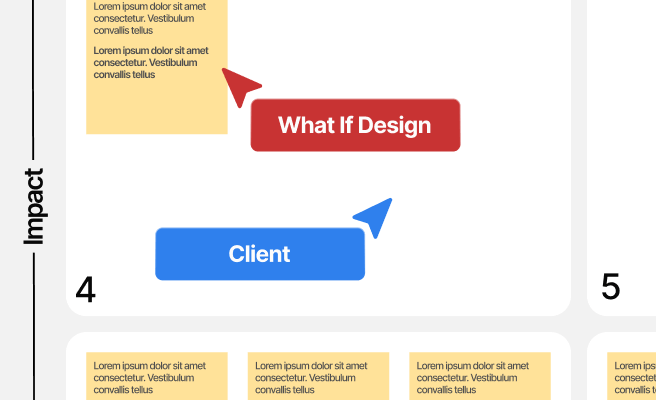Variables
<p><strong>Variables</strong> are fundamental components in programming, crucial for storing, retrieving, and manipulating data within software applications. They act as containers that hold information which can be referenced and modified throughout the program's execution. Understanding variables is essential for anyone diving into the world of software development, especially for those involved in product design where data handling is a regular task.</p>
<p>Historically, the concept of variables has evolved alongside programming languages. Early languages like assembly had basic variable handling, whereas modern languages offer advanced capabilities, making programming more efficient and powerful. For instance, in climate tech applications, variables might store data related to environmental monitoring, such as temperature readings or carbon footprint values.</p>
<h2>Types of Variables</h2>
<p>Variables can be categorized based on their data type and scope. Here are some common types:</p>
<ul>
<li><strong>Integer Variables:</strong> These store whole numbers without decimals, such as 1, 42, or -99.</li>
<li><strong>Float Variables:</strong> These hold decimal numbers, like 3.14 or -0.001.</li>
<li><strong>String Variables:</strong> These contain sequences of characters, such as "Hello, World!" or "ClimateTech".</li>
<li><strong>Boolean Variables:</strong> These store truth values, either <em>true</em> or <em>false</em>.</li>
</ul>
<h2>Scope and Lifetime of Variables</h2>
<p>The scope of a variable refers to the region of the program where the variable is accessible. Variables can have different scopes:</p>
<ul>
<li><strong>Local Variables:</strong> These are declared within a function or block and can only be accessed within that function or block.</li>
<li><strong>Global Variables:</strong> These are declared outside of all functions and can be accessed from anywhere in the program.</li>
</ul>
<p>The lifetime of a variable is the duration for which the variable exists in the memory during the program's execution. For example, local variables have a lifetime that lasts until the function completes execution, while global variables exist for the duration of the program.</p>
<h3>Example of Variable Usage</h3>
<p>Consider a simple example in Python:</p>
<pre>
<code>
# Global Variable
carbon_emission = 0.0
def monitor_emission(new_emission):
# Local Variable
daily_emission = new_emission
global carbon_emission
carbon_emission += daily_emission
return carbon_emission
# Update emission
updated_emission = monitor_emission(5.2)
print(f'Total Carbon Emission: {updated_emission}')
</code>
</pre>
<p>In this example, <em>carbon_emission</em> is a global variable, while <em>daily_emission</em> is a local variable within the <em>monitor_emission</em> function.</p>
<h2>Common Challenges and Best Practices</h2>
<p>Working with variables can present several challenges:</p>
<ul>
<li><strong>Scope Confusion:</strong> Misunderstanding the scope of variables can lead to bugs. Always be clear about where and how a variable is declared and accessed.</li>
<li><strong>Naming Conventions:</strong> Use meaningful and consistent naming conventions to avoid confusion. For example, use <em>total_emission</em> instead of <em>te</em>.</li>
<li><strong>Initialization:</strong> Always initialize variables before using them to avoid unexpected behavior or errors.</li>
</ul>
<p>Adhering to best practices in variable management can significantly improve code readability and maintainability. For further reading on best practices, refer to resources like the <a href="https://realpython.com/python-variables/" style="color: #2896FF; text-decoration: underline;">Real Python Guide</a>.</p>
<h2>Variables in Climate Tech Applications</h2>
<p>In climate tech, variables are often used to handle data related to environmental metrics. For instance, a carbon capture application might use variables to store real-time data on captured carbon amounts, operational efficiency metrics, and other crucial values. This data handling allows for effective monitoring and reporting, ultimately contributing to more sustainable practices.</p>
<h3>Case Study: Carbon Capture System</h3>
<p>Consider a carbon capture system that uses variables to track and report the amount of CO<sub>2</sub> captured daily. The application might have variables for:</p>
<ul>
<li><strong>daily_captured_co2:</strong> Amount of CO<sub>2</sub> captured each day.</li>
<li><strong>total_captured_co2:</strong> Cumulative amount of CO<sub>2</sub> captured over time.</li>
</ul>
<p>By effectively utilizing these variables, the system can provide accurate and real-time data, which is crucial for analyzing performance and making informed decisions. For more on how technology is integrated into climate solutions, visit <a href="https://www.climatetech.com" style="color: #2896FF; text-decoration: underline;">ClimateTech</a>.</p> <p>We’re using the power of design to increase the adoption of climate technologies and innovation. View our work in climate to know more on how we can support your vision. <a href="https://www.whatifdesign.co/climate" style="color:#2896FF; text-decoration:underline;">View our climate projects</a>.</p> <p>Increase user engagement that converts your demos into sales. Optimise your UX strategies with our audits.
<p>Fill out the <a href="https://tally.so/r/n97pxQ" style="color:#2896FF; text-decoration:underline;">UX Audit form</a> to get started. Ready to discuss your needs? <a href="https://cal.com/akhilak/what-if-design?duration=25" style="color:#2896FF; text-decoration:underline;">Book a consultation call</a> with us today.</p></p>

Let's scale your impact with great design.
Free consultation, no sales pitch
Thank you! Your submission has been received!
Oops! Something went wrong while submitting the form.
Let’s talk
Nothing great is built alone.
Let’s connect about your vision, our work and how we can collaborate.
Get in touch

